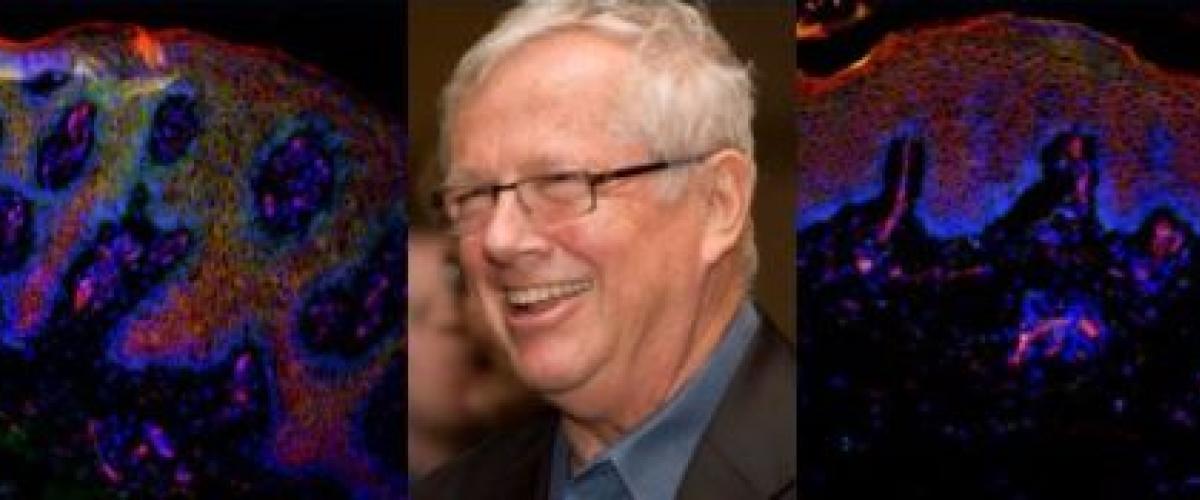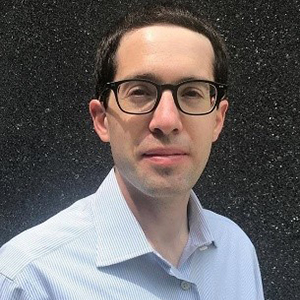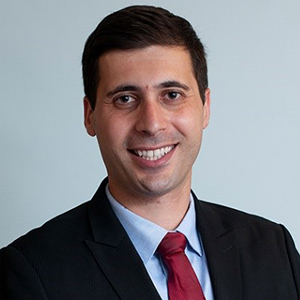

Dear Attendees,
I would like to welcome you to Duke Dermatology’s Annual Research Symposium of the Pinnell Center for Investigative Dermatology. This symposium has been an annual event commemorating Dr. Sheldon Pinnell and his commitment to investigation and innovation in dermatology.
Our 10th symposium will focus on “ImmunoOncology: Tumors, Treatments, and Toxicities.” We look forward to learning from distinguished visiting professors, as well as Duke faculty and trainees. We are also excited to launch our inaugural research poster competition where trainees will showcase their accomplishments.
We are excited to continue celebrating Dr. Pinnell’s vision to advance investigative dermatology
and Duke Dermatology.
Sincerely,
Suephy C. Chen, MD, MS
Chair, Duke Department of Dermatology
Invited Speakers

Niroshana Anandasabapathy, MD, PhD
Weill Cornell Medicine
Dr. Niroshana Anandasabapathy is an Associate Professor of Dermatology, Microbiology and
Immunology at Weill Cornell Medicine. She is an investigative physician scientist formally trained in
clinical investigation, cancer biology, cellular immunology, and clinical dermatology. Her research
investigates how tissue immune programming governs maintenance of homeostasis, the relevance of
such programs to establishing protective immunity, including immunity against melanoma skin cancer
and other cancers.

Michael Sargen, MD
National Cancer Institute, National Institutes of Health
Michael Sargen is an Assistant Clinical Investigator in the Division of Cancer Epidemiology and Genetics,
National Cancer Institute, National Institutes of Health. He also is a Dermatopathologist in the
Laboratory of Pathology, National Cancer Institute and serves as Principal Investigator for the NCI
Familial Melanoma Study and the NCI Spitzoid Tumor Study. His research combines genomic and
epidemiologic methodologies to understand the etiology of cancer

Eugene R. Semenov, MD, MA
Massachusetts General/ Harvard Medical School
Eugene R. Semenov, MD, MA is an Assistant Professor in Dermatology and Co-Director of
the Oncodermatology Program at the Massachusetts General Hospital and Harvard
Medical School with extensive experience in clinical informatics, health economics, and
public health research. His clinical experience includes cutaneous oncology with a focus on
melanoma and supportive oncodermatology.
Internal Speakers
Duke University School of Medicine
Faculty
- Suephy C. Chen, MD, MS, Professor and Chair, Duke Dermatology
- Brent Hanks, MD, PhD, Associate Professor of Duke Medicine
- Mikhail Nikiforov, PhD, Professor of Duke Pathology
- Michelle Pavlis, MD, Associate professor of Duke Dermatology
Trainee
- Matthew Draelos, MD, PhD, 2 + 2 Resident of Duke Dermatology
- Meng Jiao, PhD, Postdoc of Duke Dermatology
- Wanying Miao, MD, PhD, Postdoc of Duke Dermatology
Agenda
| 7:30am | Continental Breakfast |
| 8:00 |
Welcome |
| 8:10 | Cutaneous toxicities of immune checkpoint inhibitors Sabrina Shearer, MD Duke Dermatology |
| 8:30 | Shared mechanisms of Anti-PD1 efficacy in tumor, and toxicity in tissue Niroshana Anandasabapathy, MD, PhD Weill Cornell Medicine |
| 9:20 | Melanoma in Veterans: clinical characteristics, genetics, and real-world effectiveness of immunotherapy Michelle Pavlis, MD Duke Dermatology |
| 9:40 | Break |
| 9:55 | Dermatology in the era of Immunotherapy: from skin toxicities to melanoma prognostication Eugene Semenov, MD, MA Massachusetts General, Harvard Medical School |
| 10:50 | Deciphering the etiology of skin malignancies through large-scale epidemiologic and multi-omic profiling Michael Sargen, MD National Cancer Institute, National Institutes of Health |
| 11:40 | The challenges of clinical margin assessment Matthew Draelos, MD, PhD Duke Dermatology |
| 11:55 | Lunch |
| 1:00 | Anti-leprosy drug clofazimine: an inhibitor of AhR signaling and a potent immunomodulator Mikhail Nikiforov, PhD Duke University |
| 1:50 | Targeting PCSK9 to overcome the resistance of LKB1-deficient lung cancer to immune checkpoint blockade immunotherapy Meng Jiao, PhD Duke University |
| 2:05 | Targeting regulatory T-cells to enhance immunity against melanoma Wanying Miao, MD, PhD Duke University |
| 2:20 | Role of Inflammation and Stress in Melanoma Immune Evasion, Relapse, and Immunotherapy Resistance Brent Hanks, MD, PhD Duke University |
| 3:10 | Closing Remarks |
| 3:15- 5:00 |
Poster Session |
Overview
The Pinnell Center for Investigative Dermatology will hold its 9th annual symposium. This year’s theme is, “ImmunoOncology: Detection, Treatments, Mechanisms, and Toxicities.”
The purpose of the symposium is to articulate updates in basic, translational and clinical science research of the rapidly evolving field of cutaneous oncology, with a special focus on the role of the immune system in tumor risk, progression, and treatment. We will also explore emerging immunotherapeutic agents, as well as cutaneous side effects of current treatments.
Target Audience
Clinical care teams, including physicians, residents, and fellows, as well as basic science researchers and trainees of all levels interested in ImmunoOncology.
Course and Goal Objectives
The intent of this conference is to inform the clinical care team the current and emerging treatments and their side effects, and the bench-side researchers the clinical needs and barriers to treatment success.
At the conclusion of this activity, participants should be able to:
1. Articulate scientific updates in the fields of cutaneous oncology and immunotherapy.
2. Gain expanded knowledge about ImmunoOncology, including tumor risks, treatments, and toxicities, as well as mechanisms of tumor progression and resistance.
3. Describe approaches for cancer research and drug development.
Faculty Listing
Course Director: Suephy C. Chen, MD, MS, Duke University
Symposium Co-Chairs: Melodi Javid Whitley, MD, PhD, Duke University; Jennifer Yunyan Zhang, PhD, Duke University
Accreditation
In support of improving patient care, Duke University Health System Department of Clinical Education and Professional Development is accredited by the American Nurses Credentialing Center (ANCC), the Accreditation Council for Pharmacy Education (ACPE), and the Accreditation Council for Continuing Medical Education (ACCME), to provide continuing education for the health care team.
Credit Designation
Duke University Health System Department of Clinical Education and Professional Development designates this jointly accredited activity for a maximum of 5 AMA PRA Category 1 Credit(s)™. Physicians should claim only credit commensurate with the extent of their participation in the activity.
Obtaining Course Credit
In order to receive credit, please use the QR code to enter your name and email address. After the activity, this information will be turned into the Duke Continuing Education Office. You will then receive an email from Duke Continuing Education that will provide you with instructions for obtaining your credits and printing your certificate.
Conflict of Interest Policy
Duke University Health System Clinical Education and Professional Development has implemented a process to resolve any potential conflicts of interest for each continuing education activity in order to help ensure content objectivity, independence, fair balance, and the content that is aligned with the interest of the public.
The Pinnell Center Fund
Established in 2013, the Pinnell Center for Investigative Dermatology was named in honor of Sheldon R. Pinnell, MD, (1937-2013), former J. Lamar Calloway Professor of Dermatology and Chief, Division of Dermatology. The Center’s purpose includes the following:
- Advance discovery and translation in skin biology and disease
- Provide access to critical difficult to duplicate technologies and resources to facilitate studies at the gene, cellular, tissue and animal levels
- Advance our understanding of skin biology and pathogenesis and treatment of skin disease
- Provide support for early career investigators through initial funding
- Provide support for post-doctoral fellow training
- Fund innovative proposals and new projects focused on translational research leading to new therapies for skin disease
- Provide enrichment of the investigative community through regular seminar series, development of core facilities and laboratories, and support for translational and clinical research

The Pinnell Center Fund was created in 2013 to support the needs of the Pinnell Center. Your generous support is greatly appreciated.